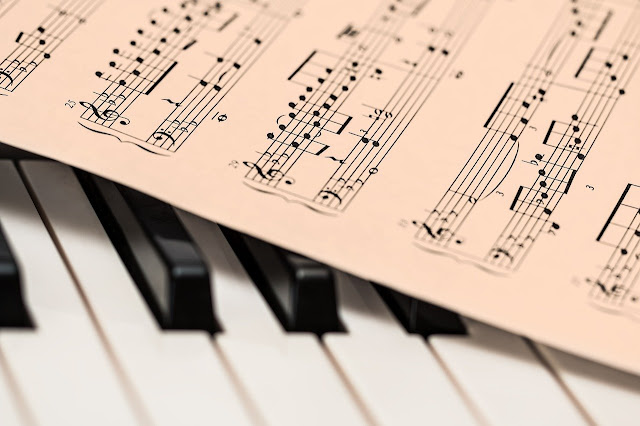 |
| 5 important tips for piano lessons |
Important information before you decide on a piano lesson!
Music may be a vital part of our life. It does more than just please our ears: it is an integral part of human development.
A few years ago in 1993, an experiment was carried out by scientists at the University of California at Irvine. (Published in Nature magazine) They asked students to listen to Mozart's Sonata for two pianos in D Middle finger, a relaxation band, or a silence. Immediately after these sessions, students took a spatial reasoning test (the ability to assemble puzzles), and student scores improved dramatically after listening to the music. The reason is that music and spatial skills share the same pathways in the brain.
Appalachian State University researchers later conducted another experiment, and researchers also managed to link music to stimulating "brainpower".
They trained preschoolers (3-4 years) for 8 months. The children were divided into 4 groups: keyboard lessons, singing lessons, computer lessons, and no lessons. After 8 months of this treatment, the children were tested for their ability to piece together puzzles (spatial-temporal thinking) and recognize shapes (thinking through spatial awareness) and the results were amazing. They found that only the children who took keyboard lessons had improved the space-time test. (However, the children showed no change in spatial recognition.)
Another interesting observation I've made is the connection between the medical profession and the musical profession: the vast majority of doctors are classically trained musicians! I've met a lot of them and asked them the same question: how can you make the connection between medicine and musicals? And the answer I got is that both are very complex and require an unusual approach and a math mindset going in many different directions at the same time. This is achieved through years of training in one or both areas that improve each other for the same reason. To them, the similarity in brain function and focus is evident and invaluable both medically and musically. It will be interesting to see the results of a more in-depth study on the subject. There is currently no conclusive scientific evidence of the connection between medicine and musicals.
Here are the 5 tips for taking piano lessons!
1) Interest:
Assess your child's interest. Do you love this or is it your dream? The child must show a genuine interest in music and keyboard for their learning experience to be enjoyable and successful. If they're not interested, ask yourself why you followed him. Is it because you have an inner need for it? It's never too late to start! Sign up for piano lessons if this is the case. I have students of all ages, some played as kids and then quit. As they got older, they regretted quitting and vowed to return one day. Then others always wanted but didn't have the opportunity to retire now with a lot of free time. They have become piano virtuosos! I'll give you these beautiful examples to give you hope and a boost: psssst! It's never too late! The student must be interested.2) instrument:
It is normal to begin piano lessons on an electronic keyboard. Over time, the student will know which direction to take piano lessons in. If it's just for personal pleasure, you can stick to a keyboard.If it is a classical piano education, the student must switch to an acoustic piano. In my experience as a piano teacher, I have found that spruce (with a lower back) piano should not be purchased unless it is given as a gift. It would be better to buy a "vertical" which is a baby grand piano, but instead of the strings being vertical, they are horizontal. The reason is that the key action is technically much better for the student's hand and sounds significantly better to the ear.
3) teacher:
Ask and get feedback from others about their teachers. Find out about the teacher's background. Where were they trained, how long do they teach, where do they teach, what is the environment like? Ask current students how patient the teacher is and how they feel during the class. You should have a pretty good idea of the teacher based on the progress of the current students. Does the teacher's personality merge with that of his son? Remember there is a choice! At school, children have to adapt to the teacher assigned to them, and that is a good thing. They learn to get along with different types of personalities, but the piano is an extracurricular activity and it should be a fun activity to look forward to.4) hours:
Children can easily be overwhelmed by too much time on their schedule. As adults, we have experienced an overload for ourselves and it's so counterproductive. It is highly recommended that you limit activities so that children are not drawn in too many directions.After settling on activities, I discovered with my children and students that writing a daily schedule gets everything done and there is no excuse to forget to practice.




0 Comments
Post a Comment